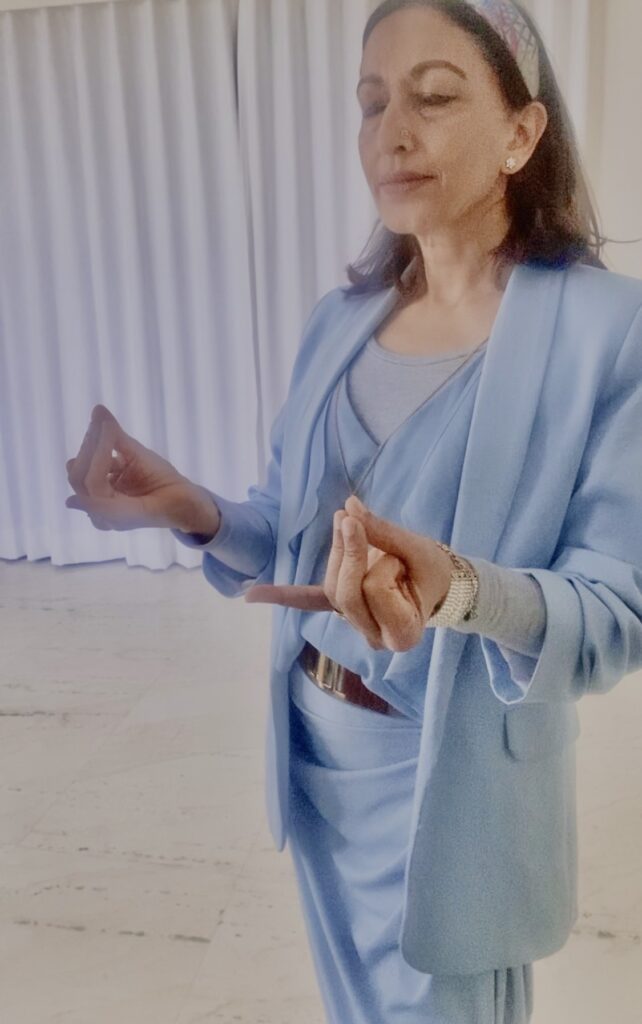Being a yoga teacher, I am used to being queried on various yogic topics. One of the most popular questions asked, especially by non Indians, is, whether yoga is limited to the ‘asanas’ they see on-screen. Well, the answer is that there is much more to the science of yoga than meets the eye. One such branch under the purview of yoga which is not so commonly accessible, is the subject of ‘Hasta Mudras’ or ‘Hand gestures’ which have a deep significance in the healing process.
‘Mudras’ are symbolic hand gestures that are believed to channel energy and promote mental, physical, and spiritual well-being. It may seem bewildering how some simple hand gestures can lead to yogic healing? Read on to find out!
Understanding Hasta Mudras
‘Hasta mudras’, derived from the Sanskrit words ‘hasta’(hand) and ‘mudra’ (gesture), are subtle yet powerful techniques where fingers are positioned to evoke specific energy flows in the body. Each of our fingers and our thumbs represent the five elements, of which we humans are composed. The thumb represents the fire element the Index finger represents the air element the middle finger, the ether or sky element the ring finger represents the earth element and the little finger represents the water element.
By placing the tip of any finger with the tip of the thumb, we increase the charge of that element within us and when we fold the finger and place its tip at the base of the thumb, then we decrease the flow and potency of that element within us. So we see ‘mudras’ are a very cleverly worked out practice by the yogic scientists of ancient times.
Hasta mudras in yoga work on the principle of stimulating different parts of the brain through nerve endings in the fingertips that hold the ability to influence the energy flow throughout the human body. Traditionally, there are around 28 to 108 ‘hasta mudras’ with their own specific effects, and these hand gestures are frequently incorporated into yogic postures, meditation, and other yogic practices to maximize the therapeutic impact.
To give you an idea of a few ‘Mudras – the ‘Gyan Mudra’, formed by touching the tip of the thumb with the tip of the index finger while keeping the other fingers extended, is believed to enhance concentration, mental focus and improve memory. While the ‘Prithvi Mudra’, which requires joining the tip of the ring finger with the tip of the thumb, is associated with boosting vitality, grounding energy, and improving digestion. The powerful ‘Surya Mudra’ is believed to increase warmth in the body, aid weight management, and boost metabolism, whereas the ‘Shunya Mudra’ is associated with relieving ear-related issues, enhancing intuition, and improving focus.
Practice and Application
To begin understanding and using hasta mudras for health, the best way would be to work with a professional yoga teacher, who would use it at an appropriate point in the yoga class and help you to focus on its associated benefits. Each ‘mudra’ should be held for about 3-15 minutes with steady focus or during posture practice as suggested by the teacher. ’Mudras’ can also be combined with pranayama or meditation to experience heightened effects.
Conclusion
Considerable research has been done on the science behind the understanding of and the efficacy of hasta mudras in yoga. The findings are now established in published studies. Research suggests how different hand gestures can stimulate specific areas of the brain, influence neural pathways, and then further affect emotional and physical well-being. Hasta mudras then go beyond therapeutic healing and are also a key factor in helping us ascend on our spiritual path.
To learn how to use ‘hasta mudras’ Join my class via Yoga with Sapna and discover how hasta mudras can have a profound impact on one’s holistic health.

